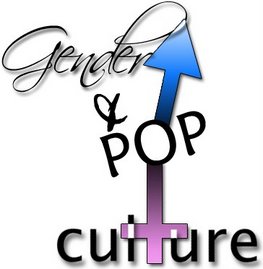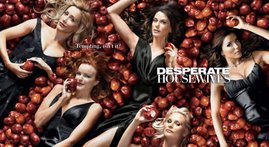Here are the 1st couple of paragraphs of the Blog's post that I responded to:
Imagine Suburbia. The clean paved roads winding between densely packed houses that all look the same. Soccer moms and mini vans with kids running in and out of the street playing games and being scolded by their parents. This painted image of suburban perfection brings with it the idea of June Cleaver and housewives of the past. These historical stereotypes of suburban moms have been carried into the present in the primetime show entitled Desperate Housewives or DH. The show brings to life conventional wisdoms and ideologies about woman and their role as mother and wife. According to Decoding Advertisements by Williamson, “Ideology is the meaning made necessary by the conditions of society while helping to perpetuate those conditions” (13). Desperate Housewives reinforces these ideologies and traditional notions of women as stay-at-home moms while at the same time, it redefines and reconstructs the stereotypes of housewives. The tension formed by redefining stereotypes brings to life the show’s discursive practices, process of signification and mediation all of which I will analyze.
The plot of DH is centered on five women; Lynnette, Bree, Susan, Gabby, and Eddie. Lynette is a wife and a mother of four trying desperately to rekindle her marriage and her old advertising career. Bree lost her husband and is a mother of two children who resent her; she is battling with alcoholism. Susan is a divorcee with one daughter trying to begin a romantic relationship with the plumber across the street. Gabby, a former model, is married with no kids, and has no intention of having her own. Eddie is a real estate agent living on Wisteria Lane with the others. All of the women were friends with their other neighbor Mary-Alice before she committed suicide in the series’ premiere. Mary-Alice committed suicide because someone discovered her dirty secret; she stole a baby and raised him as her own and killed the baby’s mother. I have just described the overall plot or the ideology of the story because ideology is defined in The Theory Toolbox by Nealon and Searls Giroux as “a descriptive word, attempting to show the way things are, a whole way of life in a social group” (86). As you can see, the plot shows that the women in this social group are desperate housewives.
Here is my response to her Blog:
I think that you make an excellent point when you state that the show has some positive messages for women as well as negative ones. For example, the fact that Lynette does end up going back to work in order to support her family is a terrific message to women. It was an interesting spin for a change to see the husband at home, taking care of the children. The fact that Tom complained to Lynette that he didn’t feel like he was doing anything meaningful reveals something extremely important about society. Being a housewife simply isn’t seen as anything valuable. As a result, women who make the choice to stay at home taking care of the house are seen as lazy and incompetent. Many husbands feel that they do not need to help with the housework, for they feel that the work they do outside the home is more difficult than staying at home with the children. I think Desperate Housewives proves that being a housewife is in fact difficult work (especially if your kids are anything like Tom’s and Lynette’s). It is a positive image to see Eddie working as a real estate agent and Lynette working as an advertiser. Nevertheless, it is important to remember that the job of a housewife is equally valuable and challenging.
You made another great point when discussing how the desperate housewives are linked to Eve in the opening credits. Even in advertisements for the show, they depict the housewives holding apples with the advertisement stating “Isn’t it tempting?” in the background. Unfortunately, this is not the most positive portrayal of women. I understand that Eve represents a form of rebellion. Unfortunately, I think she is a representation in the eyes of men and women alike that women are selfish and get men to do bad things. It makes it easier for men to not own up to their own responsibilities and simply blame whatever happens on a tempting woman. For example, Gabby cheats on her husband Carlos. I’m not supporting her decision, but it’s important to realize that Carlos was not fulfilling his duty as a husband. Carlos tried buying Gabby’s love with jewelry and cars, not by spending time with her. His idea of intimacy was sex, and Gabby felt very lonely. Eddie also gets a bad reputation on the show as the “town slut.” If Eddie’s character was a man sleeping with a bunch of women, he would be seen as a “stud” or a “lady’s man.” I’m not promoting being promiscuous, but I do not see why Eddie has to be a slut just because she is a woman. Eddie is a powerful woman because she earns her own money and does not need someone else to take care of her. The show ought to focus less on the sex appeal of the desperate housewives.
I think your overall point that Desperate Housewives does ultimately give a positive portrayal of women is valid and well thought out. The show obviously has areas upon which it could be improved, but it definitely is making a lot of headway. Like you said, the housewife is no June Cleaver. These women are flawed and make mistakes, but at the same time are very powerful and are unafraid to take risks and chances.
Tuesday, March 6
Subscribe to:
Comments (Atom)


